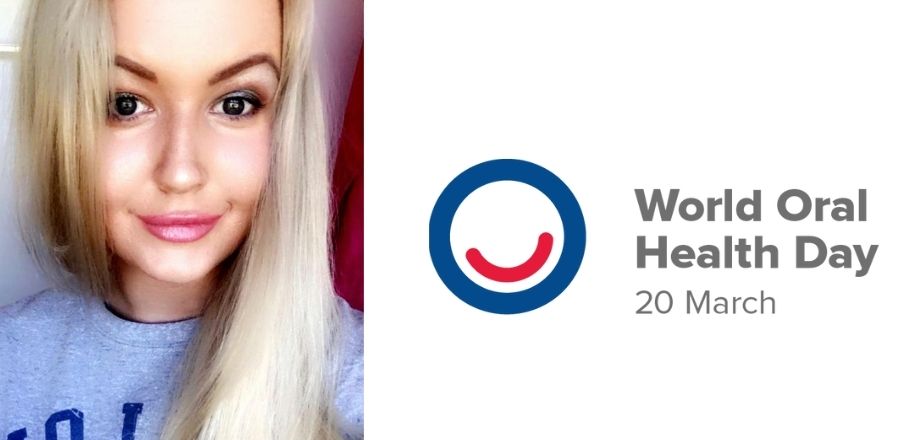GCU student provides pearls of wisdom on World Oral Heath Day

Ever wondered if your toothpaste has the right amount of sodium fluoride? Or, if an electric toothbrush is more effective than a manual toothbrush? Well, we’ve got all the answers for you as part of World Oral Health Day.
Taking place annually on Sunday 20th March, World Oral Health Day focuses on the importance of us looking after our mouths.
We caught up with third year GCU BSc Oral Health Science student Emily McIntosh to find out more:
How important is it for us to look after our mouth in terms of our mental and physical health?
“It’s extremely important for our mental health because aesthetics is becoming a really big thing in the world and having nice looking teeth can really help with that. Teeth whitening and aesthetic dentistry have increased in the past five to ten years because we’re so much more conscious of how we look.
Also, if you have a dirtier mouth along with something like diabetes or heart disease going on in your body, then you’re going to create a bigger bacterial imbalance. It can also lead to infections; if you don’t clean your teeth you get decay, which leads to an abscess, which can actually result in sepsis and a trip to hospital.”
Should we all try to get back into the routine of going to the dentist regularly after the disruption the pandemic has caused?
“Definitely! We’re supposed to have check-ups every six months and I think people forget that. You might not realise it but every time you go to the dentist you actually get an oral cancer screening. As soon as someone opens their mouth to us, the first thing we look at before your teeth are your gums, your tongue and your soft tissue - because oral cancer is on the rise.
It’s important that we regularly look at our tongue in the mirror and try to be aware of any white patches and any raised red bumpy areas that aren’t going away after a couple of days.”
Manual toothbrush vs electric - what’s your thoughts?
“I use an electric because the head on them vibrates and removes the plaque as you’re moving the brush around the mouth. With a manual toothbrush, a lot of people are in the habit of scrubbing because they want to do a good job but it actually puts a lot of pressure on the teeth and gums. This can lead to recession and damage the surface of your teeth. In comparison, an electric toothbrush will flash red at you if you’re pushing too hard. Manual toothbrushes do still work but they’re more technique sensitive than an electric one.”
What kind of toothpaste should we be using?
“What’s become quite popular with certain people is not using fluoride toothpaste because they believe it causes health problems - something which there isn’t any actual evidence of.
The most important thing about a toothpaste is that it’s got 1,450 parts per million sodium fluoride and you can find that on the packet. Some people just get what’s on offer and that’s fine; most big brands like Colgate and Oral-B have the correct amount.
What about mouthwash?
“The common mistake people make with mouthwash is using it after they brush because they want the sticky toothpaste out their mouth. You’re not supposed to rinse your mouth after brushing; you’re just supposed to spit and let the toothpaste soak in your teeth. Mouthwash is fine to use but it should be done at a different time of the day.”
By Ross Clark
Got an SHLS or GSBS story? Email me at Ross.Clark@gcu.ac.uk or message me on Twitter
